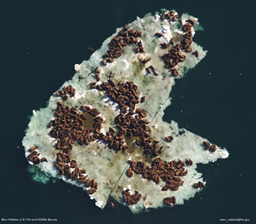
SEARCH science spans across arctic terrestrial, oceanic, atmospheric, and social systems.
SEARCH implementation activities are grouped by three objectives: Observing Change, Understanding Change, and Responding to Change.
Observing Change Activities include: data rescue, development of optimal observation and sampling strategies, observations of key processes and studies of feedbacks, acquisition of paleo-data, development of networks, development of data archival and distribution systems, and utilization of innovative and effective technology.
Understanding Change Activities include: improvement and expansion of model capabilities, model assimilation of available observations, model simulations for forecasting and for guiding the observing system design, development and use of proxy records, paleo reconstructions, and studies of interactions between arctic environmental, socioeconomic, and cultural changes.
Responding to Change Activities include: stakeholder-driven guidance of observations and identification of useful predictions, interpretation of modeling and analysis results in the context of local knowledge, assessment of the responsiveness and effectiveness of institutions in addressing social and economic concerns about climate change, and development of community-based networks and cooperatives to facilitate the above activities.
Funded SEARCH Projects
For information on funded SEARCH projects, click here.
For more about arctic change, including data on climate, land, marine, ice, and humans, visit the Cooperative Arctic Data and Information Service (CADIS) and NOAA's Arctic Change website.
